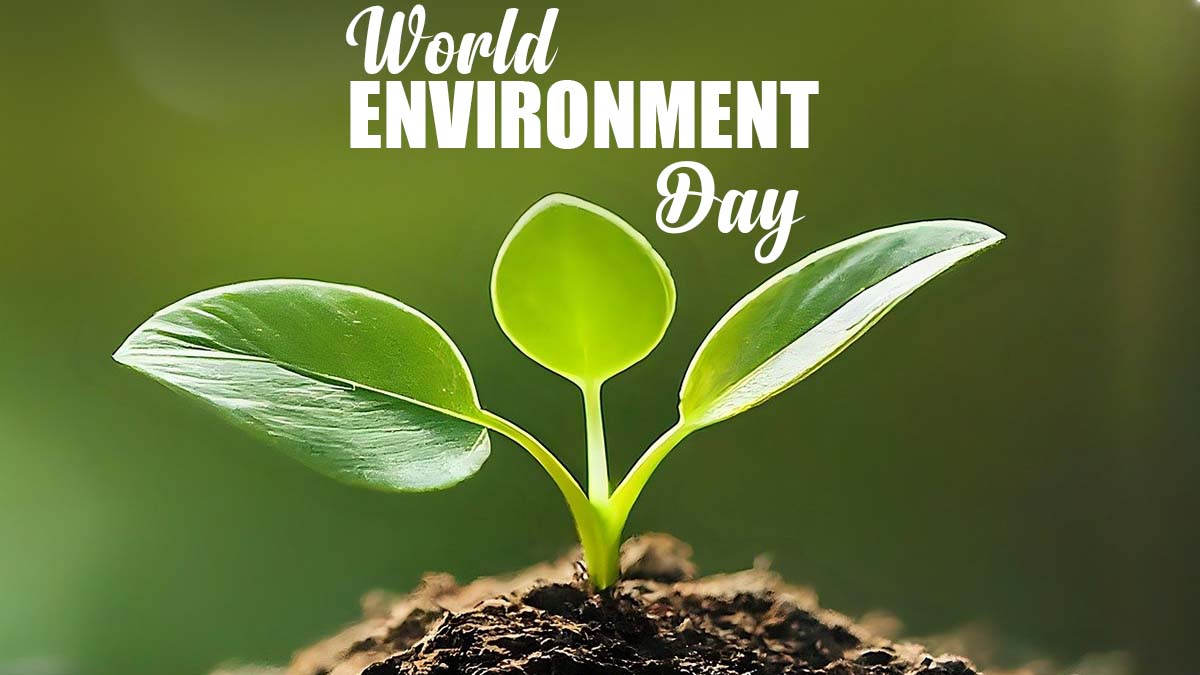Every year, on June 5th, World Environment Day is commemorated worldwide, spearheaded by the United Nations Environment Programme (UNEP) since 1972.
This annual event has evolved into a global stage for advocating the protection of the environment, predominantly from human-induced activities. These activities are often attributed to the degradation of natural climatic conditions, resulting in rising temperatures, ice cap melts, and numerous other environmental challenges.
The theme for World Environment Day (WED) 2024 is ‘Our Land – Our Future, We are #GenerationRestoration.’
The Genesis of WED
In 1972, the United Nations General Assembly instituted this day to foster awareness and action for environmental conservation. It originated from the United Nations Conference on the Human Environment held in Stockholm, Sweden, on June 5th. This conference marked pivotal discussions on environmental preservation.
This initiative unfolded against the backdrop of the post-World War II era and the prevailing Cold War tensions. The world was still reeling from the aftermath of two devastating World Wars, the deployment of atomic bombs over Hiroshima and Nagasaki, and ongoing conflicts in various regions like Cuba, Vietnam, and beyond.
Since 1973, WED has been an annual observance on June 5th. Over the past five decades, it has blossomed into one of the largest global platforms for environmental advocacy, engaging tens of millions of individuals through online participation and in-person events worldwide.
2024 Theme
This year, the Kingdom of Saudi Arabia assumes the hosting responsibilities, focusing on land restoration, desertification, and drought resilience. The theme for World Environment Day (WED) 2024 echoes the rallying cry of ‘Our Land – Our Future, We are #GenerationRestoration.’
As the global host for World Environment Day 2024, the Kingdom of Saudi Arabia reaffirms its commitment to environmental protection and sustainable development, aligning with the goals of Vision 2030. The celebration transcends borders, with tens of millions of people participating annually.
It serves as a crucial platform for raising awareness about environmental issues and advocating for conservation measures. In March 2019, the UN General Assembly endorsed a resolution designating 2021–2030 as the UN Decade on Ecosystem Restoration. This year’s World Environment Day aims to bolster progress toward these objectives, with Saudi Arabia’s campaign resonating with the theme of COP-16, ‘Our Land, Our Future,’ and the UN Decade on Ecosystem Restoration’s slogan, ‘We are #GenerationRestoration.’
According to UNEP, “Nations globally have pledged to restore one billion hectares of land – an area larger than China – by safeguarding 30% of land and sea for nature and rehabilitating 30% of the planet’s degraded ecosystems. By championing the 2030 Agenda and uniting efforts to safeguard people and the planet, World Environment Day 2024 will galvanize support for critical ecosystem restoration endeavors.”
Strategies to Combat Desertification and Drought
- Advocating Organic Farming
Encouraging organic farming not only preserves soil fertility but also yields products that are 100% safe and nutritious.
- Afforestation Initiatives
As urbanization accelerates in developing nations, vast expanses of land, teeming with millions of trees, are being transformed into barren landscapes to accommodate industries, residences, and urban infrastructure. This phenomenon exacerbates environmental challenges, such as decreased soil moisture retention. Therefore, prioritizing afforestation is imperative, not just for oxygen production but also for land quality enhancement.
- Rehabilitation of Freshwater Ecosystems
Freshwater ecosystems play a pivotal role in sustaining water cycles essential for land fertility. They provide sustenance and hydration to billions of people, mitigate droughts and floods, and serve as habitats for myriad flora and fauna. Yet, they face rapid depletion due to pollution, climate change, overfishing, and excessive exploitation. Halting this degradation entails enhancing water quality, identifying pollution sources, and monitoring freshwater ecosystem health. Cities should spearhead innovations in wastewater management to address sewage treatment, stormwater runoff, and urban flooding.
- Restoration of Coastal and Marine Environments
Oceans and seas are lifelines, furnishing humanity with oxygen, sustenance, and hydration, while mitigating climate change impacts and facilitating adaptation to extreme weather events. According to the UN, over 3 billion people, primarily in developing nations, depend on marine and coastal biodiversity for their livelihoods. Nations can revive marine ecosystems – encompassing mangroves, salt marshes, kelp forests, and coral reefs – while enforcing stringent regulations on pollution, nutrient overload, agricultural runoff, industrial effluents, and plastic waste to prevent their seepage into coastal regions.
- Mobilizing Financial Resources for Restoration Efforts
Transitioning bank accounts to financial institutions that prioritize sustainable ventures, contributing to restoration initiatives, or supporting innovative crowdfunding endeavors can aid in planetary preservation. As per the United Nations, escalating population growth, coupled with unsustainable consumption and production patterns, exerts immense pressure on land, leading to its degradation.
“Desertification and drought fuel forced migration, imperiling tens of millions of people annually,” asserts the UN. Therefore, World Environment Day serves as a prime opportunity to disseminate awareness about the adverse consequences of environmental degradation and promote sustainable, eco-friendly practices.




